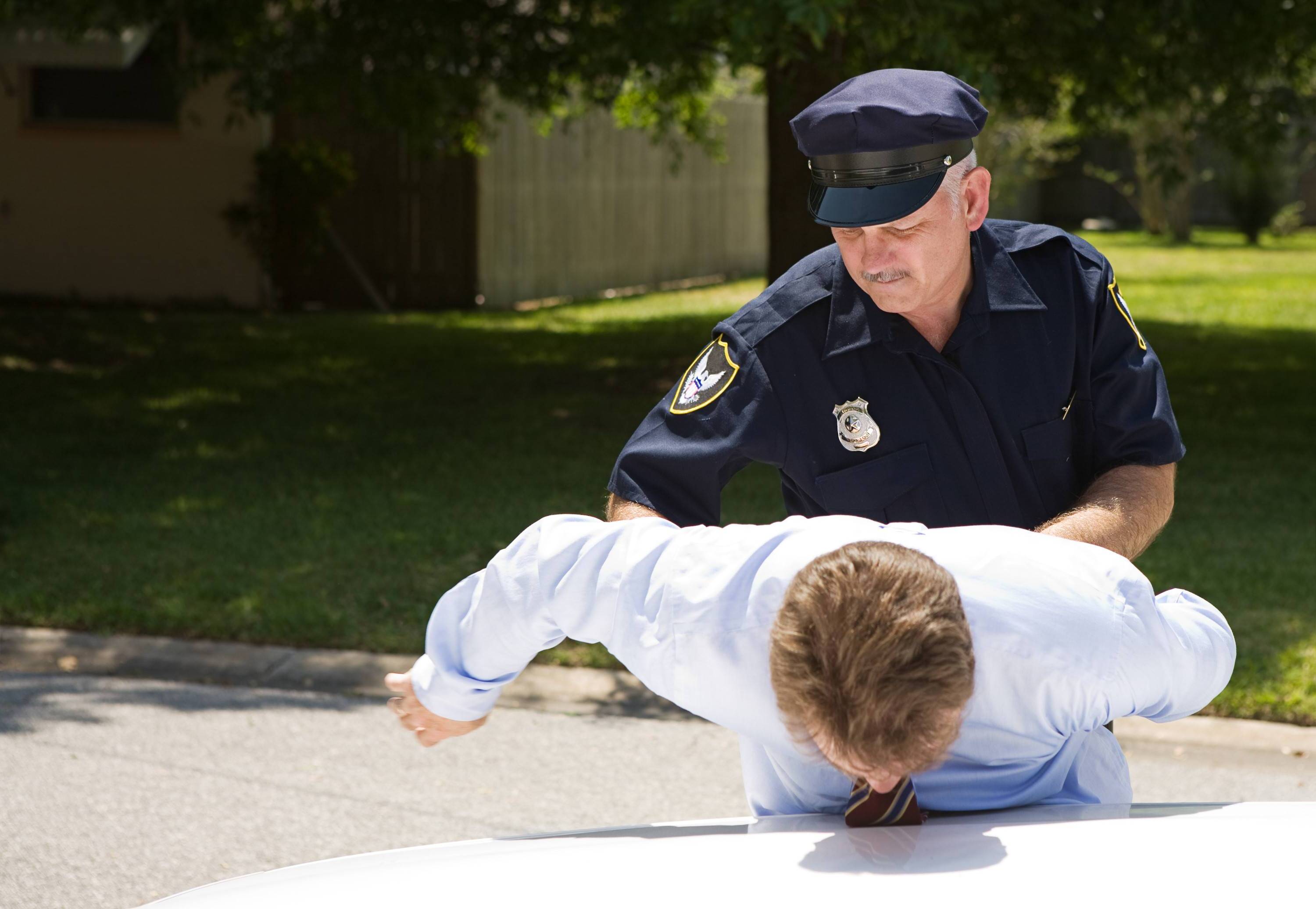
Ever wondered about the dark side of law enforcement? Crooked cops, those who break the very laws they're sworn to uphold, have been a part of history for as long as policing itself. These officers engage in activities ranging from bribery and corruption to more severe crimes like drug trafficking and even murder. Why do some officers turn to the dark side? The reasons vary, including financial pressures, power trips, or simply the allure of easy money. What are the consequences? The impact on communities is devastating, eroding trust and making it harder for honest officers to do their jobs. Ready to dive into some jaw-dropping facts? Buckle up, because this list will leave you questioning everything you thought you knew about law enforcement.
Key Takeaways:
- Corruption in law enforcement, including bribery, drug trafficking, and abuse of power, erodes public trust and hinders justice. Efforts to combat corruption include internal investigations and community involvement.
- High-profile cases like the Rampart Scandal and the Serpico Case highlight the need for reform in law enforcement. Whistleblower protections and community policing initiatives are essential in combating corruption.
The Dark Side of Law Enforcement
Law enforcement officers are entrusted with upholding the law and protecting citizens. However, some officers stray from their duties, engaging in corrupt activities. Here are some startling facts about crooked cops.
-
Police Corruption is Global: Corruption in law enforcement isn't confined to one country. It's a global issue affecting both developed and developing nations.
-
Bribery is Common: Many corrupt officers accept bribes to overlook crimes or provide protection to criminals.
-
Drug Trafficking Involvement: Some officers are involved in drug trafficking, either by protecting drug dealers or actively participating in the trade.
-
False Evidence Planting: Crooked cops sometimes plant false evidence to frame innocent individuals or cover up their own crimes.
-
Excessive Use of Force: Some officers misuse their power by employing excessive force, often leading to severe injuries or fatalities.
Financial Misconduct
Financial misconduct is another area where some law enforcement officers falter. This can range from embezzlement to extortion.
-
Embezzlement of Funds: Some officers embezzle funds from their departments or from public funds meant for community projects.
-
Extortion of Businesses: Crooked cops may extort money from local businesses in exchange for "protection" or to avoid harassment.
-
Misuse of Department Resources: Some officers misuse department resources for personal gain, such as using police vehicles for private purposes.
-
Fraudulent Overtime Claims: Some officers file fraudulent overtime claims to receive extra pay for hours they didn't work.
-
Theft from Crime Scenes: There have been instances where officers steal money or valuables from crime scenes.
Abuse of Power
Abuse of power is a significant issue among corrupt officers. This abuse can take many forms, from intimidation to outright criminal activities.
-
Intimidation of Witnesses: Some officers intimidate witnesses to prevent them from testifying in court.
-
Sexual Misconduct: There have been cases of officers engaging in sexual misconduct, including harassment and assault.
-
Unlawful Arrests: Some officers make unlawful arrests to settle personal vendettas or to meet arrest quotas.
-
Covering Up Crimes: Crooked cops sometimes cover up their own crimes or those of their colleagues.
-
Misuse of Surveillance: Some officers misuse surveillance equipment to spy on individuals for personal reasons.
Collusion with Criminals
Collusion with criminals is a severe form of corruption. This involves officers working directly with criminals for mutual benefit.
-
Providing Inside Information: Some officers provide criminals with inside information about police operations.
-
Facilitating Criminal Activities: Crooked cops may facilitate criminal activities by providing protection or logistical support.
-
Destroying Evidence: Some officers destroy evidence to protect criminals or to cover up their own involvement in crimes.
-
Accepting Kickbacks: Officers may accept kickbacks from criminals in exchange for turning a blind eye to their activities.
-
Participating in Organized Crime: There have been instances of officers participating in organized crime rings.
Impact on Public Trust
Corruption in law enforcement significantly impacts public trust. When officers engage in corrupt activities, it erodes the community's faith in the justice system.
-
Erosion of Public Trust: Corruption leads to a significant erosion of public trust in law enforcement agencies.
-
Increased Crime Rates: Corruption can lead to increased crime rates as criminals feel emboldened by the lack of enforcement.
-
Community Fear: Communities may live in fear of both criminals and the police, leading to a breakdown in social order.
-
Hindrance to Justice: Corruption hinders the pursuit of justice, as innocent individuals may be wrongfully convicted while criminals go free.
-
Financial Costs: Corruption leads to financial costs for the community, including legal fees and settlements for wrongful actions.
Efforts to Combat Corruption
Despite the prevalence of corruption, many efforts are being made to combat it. These efforts include internal investigations, external oversight, and community involvement.
-
Internal Affairs Units: Many police departments have internal affairs units dedicated to investigating corruption within the force.
-
External Oversight: External oversight bodies, such as civilian review boards, help hold officers accountable.
-
Whistleblower Protections: Protections for whistleblowers encourage officers to report corruption without fear of retaliation.
-
Community Policing: Community policing initiatives help build trust between law enforcement and the community, making it easier to identify and address corruption.
-
Training and Education: Ongoing training and education for officers emphasize the importance of ethics and integrity.
High-Profile Cases
High-profile cases of police corruption often bring the issue to the forefront, highlighting the need for reform.
-
The Rampart Scandal: In the late 1990s, the LAPD's Rampart Division was involved in widespread corruption, including drug dealing and planting evidence.
-
The Serpico Case: Frank Serpico exposed widespread corruption in the NYPD during the 1970s, leading to significant reforms.
-
The Chicago Police Torture Scandal: From the 1970s to the 1990s, Chicago police officers were involved in torturing suspects to obtain confessions.
-
The Baltimore Gun Trace Task Force: In 2017, members of this task force were found guilty of robbery, extortion, and selling drugs.
-
The New Orleans Police Department: The NOPD has faced numerous corruption scandals, including officers being involved in drug trafficking and murder.
The Final Word on Crooked Cops
Corruption within law enforcement isn't just a plot for movies. It's a real issue affecting communities worldwide. Crooked cops undermine trust, compromise safety, and tarnish the reputation of the many good officers dedicated to serving and protecting.
Understanding the signs of police corruption and knowing your rights can help combat this problem. Reporting suspicious behavior, supporting transparency, and advocating for accountability are steps everyone can take.
Remember, not all cops are bad. Many risk their lives daily to keep us safe. But shining a light on the bad apples ensures a healthier, more trustworthy system for everyone.
Stay informed, stay vigilant, and support efforts to root out corruption. Together, we can help build a more just and fair society.
Frequently Asked Questions
Was this page helpful?
Our commitment to delivering trustworthy and engaging content is at the heart of what we do. Each fact on our site is contributed by real users like you, bringing a wealth of diverse insights and information. To ensure the highest standards of accuracy and reliability, our dedicated editors meticulously review each submission. This process guarantees that the facts we share are not only fascinating but also credible. Trust in our commitment to quality and authenticity as you explore and learn with us.


